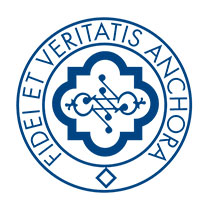Subject of the reform. What is it?
As of today, forced heirs (family members of the deceased: such as spouse, children and in the absence of children, ascendants) are entitled to a share of the estate (called the “legitimate share” or “reserved share”) which includes all categories of assets involved in the succession.
For example: if the deceased has left money, shareholdings, buildings, jewellery and land and the legitimate share is equal to a quarter, the forced heir has a right to one-fourth of such assets.
The proposal, instead, provides that the forced heir’s claim can be satisfied either with only one of the assets in the succession or even with a non-hereditary asset. In other words, under this proposal the forced heir is transformed from a necessary heir into the rightful heir to a credit. The value of this credit can only be determined after the death of the testator and can be satisfied with any goods, including non-hereditary assets. By way of this reform, the forced heir penalised in his legitimate share (who has not received the amount due him) or the omitted heir (who did not receive anything) because of gifts or bequests made by the deceased during his lifetime, is protected in any case through exercise of the action for reduction in respect of the donee and/or beneficiary of the testamentary disposition. The latter may return the goods in kind if they are still available to them (i.e. they have not already sold), or they can pay the value of the credit as it stood at the time of probate.
The proposal, however, finally repeals the action for restitution which can at present be exercised by the forced heir against any potential buyers from the donees and/or beneficiaries of testamentary dispositions.
In other words, with the legislation currently in force the sale of a property from a donation presents some very critical aspects, because donations may be challenged by the heirs affected until 10 years have elapsed from the death of the donor or 20 years after donation. The current rules therefore imply serious limitations on the sale and purchase of property received by gift, both because the person who received a property donation cannot provide adequate guarantees to the buyer, and because banks are reluctant to grant loans secured by a mortgage over such a property. To overcome these problems, the proposal foresees abrogation of the action for restitution.
Another fundamental innovation in this proposal is that it allows the forced heir to waive in advance, by public deed, his right to the action for reduction with respect to certain donations (an option currently prohibited). It is not possible, however, to reject all future donations as well: a waiver regarding the generality of future donations would be null and void.
The proposal also revises the list of forced heirs and the extent of their rights.
In this, we wanted to respond to the radical changes that have occurred in recent decades in the social and moral reality that have also affected family relations based on marriage.
In particular, the proposal does not consider a legally separated spouse to be a forced heir. This person has a right to a sustenance payment only if at the time of probate he or she is in need and has been receiving alimony from the deceased. The size of the payment must be determined by the court.
Furthermore, the proposal abolishes any distinction between legitimate and illegitimate children, through the repeal of the institution of “switching”, the project having been formulated before the adoption of Law 219/2012 and the corresponding Legislative Decree 154/2013. Today the distinction must be considered superseded by the above measures that have implemented the change permanently.
Aim of the reform. What are the benefits?
The goal of the project is to change the institution of “necessary” succession, adjusting it to the current needs of society as well as the choices made in other European countries. The special protection that our legal system offers penalised or omitted forced heirs who can move for reduction even after many years, in addition to relying on the action for restitution from any purchaser from the donees and/or beneficiaries of testamentary dispositions, with consequent limitations on the circulation of wealth and the safety of legal transactions, had a valid basis in the Code of ’42, when the protection of the legitimate share was based on the concept of family solidarity, or the need to favour family ties but also to protect any needy close relatives. These requirements appear to be no longer fully in tune with reality.
The family, now, rather than being a productive unit is a community of consumers, enjoying education and leisure. Parents contribute to the maintenance of their children for a long period and the children leave their parents’ home after the conclusion of their studies. The children, therefore, have not contributed to creating and increasing the family fortune but have already enjoyed the benefits (in terms of maintenance, food and education) derived from it. For these reasons the proposal suggests a review of the rights and protection of legitimate heirs.






